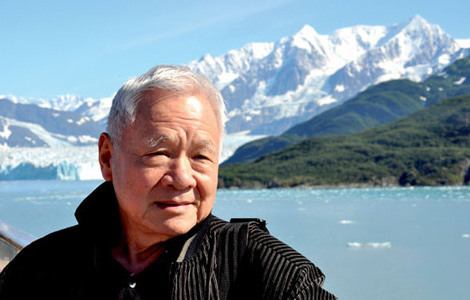Listening to the call of the wilderness
Updated: 2013-12-19 08:53
By Jiang Xueqing (China Daily)
|
||||||||
|
|
New national park system will facilitate conservation drive, Jiang Xueqing reports in Beijing.
China may soon have national parks that rival world-famous attractions as the nation moves to preserve ancient wilderness areas for generations to come.
"The idea behind the establishment of a national park system is to push reform in protected areas and make conservation efforts more effective," said an official from the Ministry of Environmental Protection.
The decision to establish a national park system was ratified at a key Party meeting in November.
Unlike government-funded national parks in most Western countries, nature reserves and scenic areas in China have to make a profit. Although the government subsidizes the conservation of crucial natural resources, the amount is far from adequate, said Ning Zequn, a professor at Beijing Union University's Tourism Institute.
"Those in charge of some protected areas - local governments and relevant companies - don't care about whether or not a certain development model suits a particular area. They are more interested in how much economic interest the model will attract," he said.
"The current development model has caused irreversible damage to a number of natural heritage sites, making the chances that future generations will be able to admire their beauty very slim."
Since 2009, the Ministry of Environmental Protection has been monitoring State-level nature reserves via remote sensing equipment. The surveillance revealed that a small number of nature reserves had redrawn their areas and zones of function without obtaining the approval of the State Council. The natural resources in the reserves had also been illegally explored, resulting in damage to local ecosystems.
Earlier this month, during an interview on a government website, a leading official from the Ministry of Environmental Protection said: "With the rapid economic and social development seen in recent years, many local governments have applied to redefine State-level nature reserves. Some local authorities have reduced the land area of their reserves, leading to the fragmentation of habitats and endangering the survival of several species, and having a bad influence on the protection of the ecological environment and biodiversity."
Redefining reservesTo strengthen management of the protected areas, on Dec 2 the State Council issued a tough regulation on the redefinition of State-level nature reserves, which stated that reserves would be disqualified if they suffered severe environmental damage and lost their conservation value. In the most serious cases, those behind decisions that cause damages would be held legally responsible for the environmental destruction.
In Ning's opinion, the establishment of national parks is the best way to protect nature, but China must learn from other countries. Moreover, he warned that the plan "might turn into a stimulus for economic growth, rather than providing public services paid for through taxes, if government officials do not change their mindsets".
China has more than 6,000 protected wilderness areas, including nature reserves, scenic areas and forest parks, covering roughly 19 percent of the total land area, according to Zhu Chunquan, the China representative of the Switzerland-based International Union for Conservation of Nature.
"Establishing a scientific and unified classification system for China's protected areas is necessary to help the country develop a protected area law and management plan with clear goals. Before the plan is drawn up, the authorities will have to assess the conservation value and demands of different protected areas based on their natural features and the socio-economic conditions," said Zhu.

 Parents urged to supervise children's TV-viewing habits
Parents urged to supervise children's TV-viewing habits
 Jazzing up Beijing
Jazzing up Beijing
 Snow storm wallops NE USA
Snow storm wallops NE USA Russia to bail out Ukraine for $15 billion
Russia to bail out Ukraine for $15 billion
 Fatal tiger attack 'points to flaws in zoo management'
Fatal tiger attack 'points to flaws in zoo management'
 Merkel sworn in as chancellor for a third term
Merkel sworn in as chancellor for a third term
 Life in poetry
Life in poetry
 US first lady visits children in medical center
US first lady visits children in medical center
Most Viewed
Editor's Picks

|

|

|

|

|

|
Today's Top News
Military plays down 'near-miss' between warships
Fed to cut bond purchases by $10B
Overseas investing sees large jump
China expands research in Antarctica
Cloud seeding plans spark debate
Russia to bail out Ukraine for $15 billion
Vast deposits of 'flammable ice' found
System for organ donors test
US Weekly

|

|









